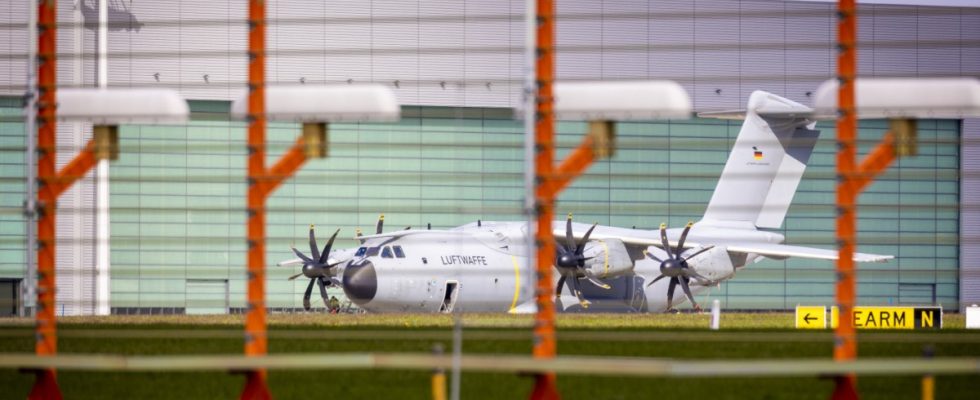The Bundeswehr rescue flights for German nationals from Sudan are coming to an end. According to the Federal Foreign Office and the Ministry of Defense, the last evacuation flight from the crisis region should be carried out on Tuesday evening. “If other nations ensure the operation of air traffic, no further German evacuation flights from this region are planned,” said both departments on Tuesday afternoon.
As of Tuesday afternoon, the soldiers of the Bundeswehr had taken almost 500 people from the embattled capital Khartoum, including more than 170 German citizens. Overall, the Bundeswehr has flown people out from around 30 nations.
According to information from Süddeutsche Zeitung On Tuesday alone, up to three military transporters of the type A400M approach an airfield north of the capital Khartoum from Jordan. After that, the Bundeswehr probably wanted to hand over the coordination of the evacuation operation to other partners, confirmed Defense Minister Boris Pistorius. However, further flights remained possible as long as the security situation and the Sudanese army permitted.
All reachable Germans should have been reached
The German government assumed that there were still around 300 nationals in Sudan when the evacuation mission began. This roughly corresponds to the number of people who had registered on the emergency list, but this is a voluntary step. Pistorius explained that everyone who could be reached had been reached and had made their way to the airport. Recently, only a few Germans had come to the airfield of the Sudanese army, through which the Bundeswehr and other foreign armed forces are conducting the mission.
From Wednesday, the Bundeswehr wants to start moving back material and personnel. In the coming days, most of the soldiers and civilian employees of the crisis support team will be brought back via Jordan, which will serve as a hub during the operation. The SZ learned that the first machines could return from use to Wunstorf in Lower Saxony as early as Friday.
A supply ship is also on its way to the crisis area
In some cases, the Federal Foreign Office has not been able to contact people, so it is not clear where they are and whether they intend to evacuate. The worse the supply situation in the country became, the more difficult it became to keep in touch with the people. Others may not be able to come to the airport due to the security situation, where they are in the country or for other reasons. Or they prefer to remain in the country regardless of the ongoing unstable situation. Still others may have set out in convoys before the flights began to leave Sudan by land.
23 Germans are said to be part of a UN convoy that left Khartoum days ago and has since arrived in Port Sudan. Other German citizens could also have made the journey to Port Sudan of their own accord, but the Federal Foreign Office does not have an exact overview.
Three Germans who were on a boat off Sudan when fighting broke out were able to travel to Egypt on a cruise ship. Nine Germans were flown from France to Djibouti. Foreign Minister Annalena Baerbock (Greens) said: “We are also continuing to work on ways to safety for those Germans who are still in Sudan – be it with flights from partners, by land or by sea.”
The federal government and parliament made preparations on Tuesday to have the operation subsequently approved by the Bundestag. After the vote within the federal government, the defense and foreign ministries submitted the text for a Sudan mandate to the Bundestag on Tuesday.
According to this, up to 1,600 soldiers should be allowed to evacuate by May 31st. The operation started with 1000 soldiers. “The continuing escalation of violence in large parts of the country and in the capital Khartoum makes it necessary for the Bundeswehr to intervene,” the mandate text explains. It is about protecting “life and limb” of German citizens and others. According to the document, the evacuation operation could cost a good 22 million euros. Defense Minister Pistorius praised the Bundeswehr for having “managed the operation well”.

